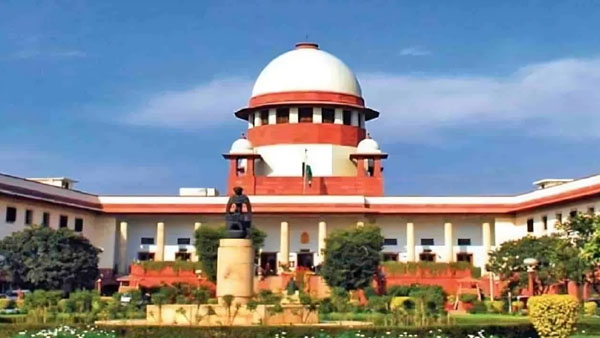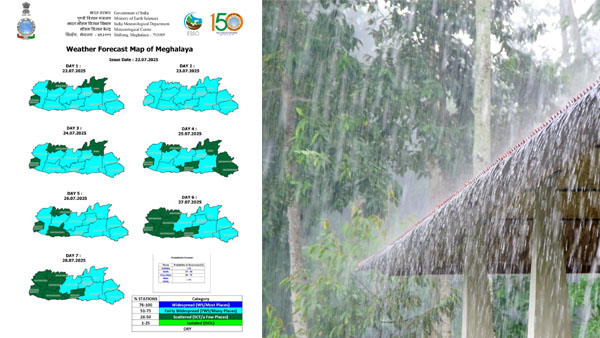New Delhi, Jul 22: The Supreme Court on Tuesday refused to stay the “QR” code directive for eateries along Kanwar Yatra route in UP, Uttarakhand and directed all hotel owners along the route to display their licences and registration certificates in line with the statutory requirements.

A bench of Justices M M Sundresh and N Kotiswar Singh said it was not going into the other issues over display of names of the hotel or dhaba owner and the QR code, Tuesday being the last day of the Kanwar Yatra.
“We are told that today is the last day of the yatra. In any case it is likely to come to an end in the near future. Therefore, at this stage we would only pass an order that all the respective hotel owners shall comply with the mandate of displaying the licence and the registration certificate as per the statutory requirements,” the bench said.
The top court was hearing a plea filed by academician Apoorvanand Jha and others.
Senior advocate Abhishek M Singhvi, appearing for the petitioners, submitted that the UP government should have sought the modification of the court’s 2024 order before issuing the QR code directives.
Singhvi argued the state government was trying to ostracise and exclude minorities by its QR code directive for eateries along the Kanwar Yatra route.
“This is the most divisive initiative, to ostracise people during the yatra, as if these people are untouchables. Will my surname ensure that ‘kanwariyas’ receive good quality food not menu card? This is the most divisive initiative possible,” the senior lawyer submitted.
Referring to news reports over the alleged attacks on certain shops by kanwariyas, the senior lawyer said, “When you sow the seeds of divisiveness, the rest is taken care of by the populace.”
Responding to his submission, Justice Sundresh said people had different food choices and a vegetarian may choose to go to only a place serving exclusively vegetarian food, especially during a religious pilgrimage.
Senior advocate Mukul Rohatgi, appearing for the Uttar Pradesh government, said directions were issued in line with the requirements of the Food Safety and Standards Authority of India regulations.
“There are people in this country who will not eat in there brother’s house if meat is cooked. There are sentiments of devotees,” Rohatgi said, “and as per the regulations under the Act they require photo identity. Why are you scared of showing your name? I don’t understand.”
Senior advocate Huzefa Ahmadi, representing other petitioners, said the eateries along this route only sold vegetarian items during this period according to local regulations.
Justice Sundresh observed a customer must have the choice of knowing if a place was exclusively selling vegetarian items throughout.
“If a hotel is running as a vegetarian hotel all through, then the question of indicating names and other things will not arise. But if only for the purpose of yatra, somebody stops serving non-vegetarian and starts selling vegetarian, the consumer should know,” the judge remarked.
He continued, “To that extent, consumers should have that flexibility. If one hotel was earlier serving non-vegetarian, and for the purpose of better business they serve only vegetarian during the yatra, it will be an issue for the consideration of the consumer. The choice is of the consumer. Consumer is the king.”
The bench further said it was not inclined to examine the petition as the issue was infructuous considering it was last day of the yatra.
The Supreme Court last year stayed similar directives issued by Uttar Pradesh, Uttarakhand and Madhya Pradesh governments, asking eateries along the Kanwar Yatra route to display the names of their owners, staff and other details.
Referring to a press release issued by the UP government on June 25, Jha, said, “The new measures mandate the display of QR codes on all eateries along the kanwar route which reveal the names and identities of the owners, thereby achieving the same discriminatory profiling that was previously stayed by this court.”

The petitioner said the state government’s directive asking stall owners to reveal religious and caste identities under “lawful license requirements” breaches the right to privacy of the shop, dhaba and restaurant owners.
A large number of devotees travel from various places with “kanwars” carrying holy water from the Ganga to perform “jalabhishek” of Shivling during the Hindu calendar month of “Shravan”.
Many believers shun the consumption of meat during the month and even avoid meals cooked with onion and garlic. (PTI)




